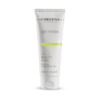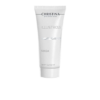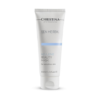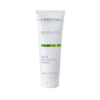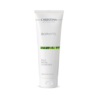
Skincare advice is everywhere – from social media influencers to well-meaning family members. But not all of it is backed by science.
Here are the top 10 skincare myths that dermatologists want you to stop believing.
1. Myth: You Don’t Need Sunscreen on Cloudy Days
The Truth: Up to 80% of UV rays can penetrate clouds, meaning your skin is still vulnerable to sun damage even when it’s overcast. Dermatologists emphasize that daily sunscreen application is essential regardless of weather conditions.
UV exposure is the leading cause of premature aging and skin cancer, making sunscreen your most important anti-aging product.
Expert Tip: Apply broad-spectrum SPF 30 or higher every morning, even indoors, as UVA rays can penetrate windows.
Recommended Products:
- EltaMD UV Clear Broad-Spectrum SPF 46 – Lightweight, oil-free formula perfect for sensitive and acne-prone skin
- La Roche-Posay Anthelios Melt-in Milk Sunscreen SPF 60 – Fast-absorbing with antioxidant protection
- Supergoop! Unseen Sunscreen SPF 40 – Invisible, weightless formula that works under makeup

2. Myth: Oily Skin Doesn’t Need Moisturizer
The Truth: Skipping moisturizer can actually make oily skin worse. When skin becomes dehydrated, it compensates by producing more oil. Dermatologists recommend lightweight, oil-free, or gel-based moisturizers that hydrate without clogging pores.
Look for non-comedogenic products with ingredients like hyaluronic acid, which provides hydration without adding heaviness to oily skin types.
Recommended Products:
- Neutrogena Hydro Boost Water Gel – Oil-free hyaluronic acid formula for intense hydration
- CeraVe PM Facial Moisturizing Lotion – Lightweight with niacinamide to help control oil
- The Ordinary Natural Moisturizing Factors + HA – Affordable, non-greasy hydration
Read more: Anti-Aging Routine for Combination Skin: Complete Dermatologist Guide
3. Myth: Natural Products Are Always Better for Your Skin
The Truth: Natural doesn’t automatically mean safe or effective. Many natural ingredients can cause allergic reactions, irritation, or photosensitivity. Poison ivy is natural, but you wouldn’t put it on your face. Conversely, many synthetic ingredients are extensively tested for safety and efficacy.
Dermatologists focus on ingredient science rather than marketing claims. Some natural ingredients are excellent for skin, while others can be harmful—the same applies to synthetic ingredients.
Recommended Products:
- Christina Unstress Probiotic Cream – Combines scientifically-proven probiotics with skin-soothing ingredients for sensitive skin
- Paula’s Choice 2% BHA Liquid Exfoliant – Synthetic salicylic acid that’s gentle and effective
- Drunk Elephant Protini Polypeptide Cream – Blend of natural and synthetic ingredients for optimal results
4. Myth: You Should Exfoliate Daily for Glowing Skin
The Truth: Over-exfoliation is one of the most common skincare mistakes dermatologists see. Excessive exfoliation strips the skin’s protective barrier, leading to sensitivity, redness, inflammation, and increased breakouts.
Most skin types benefit from exfoliating two to three times per week, not daily. Those with sensitive skin may only need once-weekly exfoliation. Chemical exfoliants like AHAs and BHAs are often gentler than harsh physical scrubs.
Recommended Products:
- The Ordinary Lactic Acid 10% + HA – Gentle AHA exfoliant for beginners
- Paula’s Choice Skin Perfecting 8% AHA Gel Exfoliant – Effective glycolic acid treatment
- Dermalogica Daily Microfoliant – Rice-based enzymatic exfoliant for sensitive skin
Read more: How to Choose an Exfoliator for Your Face at Home
5. Myth: Expensive Products Always Work Better Than Drugstore Options
The Truth: Price doesn’t determine effectiveness. Many affordable drugstore products contain the same active ingredients as luxury brands at similar concentrations. Dermatologists often recommend drugstore staples like CeraVe, Cetaphil, and La Roche-Posay.
What matters is the formulation, active ingredients, and whether the product suits your skin type – not the price tag. Focus on reading ingredient labels rather than being swayed by premium packaging.
Recommended Products:
- CeraVe Moisturizing Cream – Dermatologist-developed with ceramides and hyaluronic acid
- The Inkey List Retinol Serum – Affordable retinol with excellent results
- Cetaphil Gentle Skin Cleanser – Trusted, budget-friendly cleanser for all skin types
6. Myth: Pores Can Open and Close
The Truth: Pores don’t have muscles, so they cannot open and close. Steam or warm water may temporarily soften the debris in pores, making extraction easier, but they don’t actually change pore size.
What you can do is minimize the appearance of pores through regular cleansing, exfoliation, and using products with niacinamide or retinoids that help keep pores clear and make them appear smaller.
Recommended Products:
- Paula’s Choice 10% Niacinamide Booster – High-concentration niacinamide to minimize pore appearance
- The Ordinary Niacinamide 10% + Zinc 1% – Affordable option for pore refinement
- Differin Gel (Adapalene 0.1%) – Over-the-counter retinoid that helps keep pores clear
7. Myth: You Can Shrink Your Pores Permanently
The Truth: Pore size is largely determined by genetics. While you cannot permanently shrink pores, you can minimize their appearance. Keeping them clean and using products that promote skin elasticity can make them less noticeable.
Retinoids, salicylic acid, and niacinamide are dermatologist-recommended ingredients that help manage pore appearance by preventing buildup and supporting skin structure.
Recommended Products:
- Christina Rose de Mer Golden Drops – Luxurious serum with skin-refining properties and peptides for improved texture
- La Roche-Posay Effaclar Pore Refining Serum – Triple-acid treatment for visible pore reduction
- Sunday Riley Good Genes Lactic Acid Treatment – Exfoliating treatment that smooths skin texture
8. Myth: Acne Is Caused by Dirty Skin
The Truth: Acne is a complex condition influenced by hormones, genetics, bacteria, and excess oil production – not poor hygiene. In fact, over-washing or scrubbing can irritate skin and worsen breakouts.
Dermatologists recommend gentle cleansing twice daily and using targeted acne treatments containing ingredients like benzoyl peroxide, salicylic acid, or retinoids rather than harsh scrubbing.
Recommended Products:
- CeraVe Acne Foaming Cream Cleanser – Contains 4% benzoyl peroxide with ceramides
- La Roche-Posay Effaclar Duo Acne Treatment – Dual-action treatment with benzoyl peroxide and micro-exfoliating LHA
- Neutrogena Stubborn Acne AM Treatment – Affordable benzoyl peroxide option for morning use
9. Myth: You Don’t Need Anti-Aging Products Until You See Wrinkles
The Truth: Prevention is easier than correction. Dermatologists recommend starting a preventive anti-aging routine in your mid-to-late twenties. This doesn’t mean complex regimens – consistent sunscreen use and a retinoid product can make a significant difference.
The damage that causes visible aging begins long before wrinkles appear. Early prevention with sunscreen, antioxidants, and retinoids helps maintain youthful skin longer.
Recommended Products:
- RoC Retinol Correxion Deep Wrinkle Night Cream – Affordable retinol for anti-aging beginners
- SkinCeuticals C E Ferulic – Gold-standard vitamin C serum with antioxidant protection
- Olay Regenerist Retinol 24 Night Moisturizer – Gentle retinoid complex for nightly use
10. Myth: If a Product Tingles or Burns, It’s Working
The Truth: Discomfort is not an indicator of effectiveness. While some active ingredients like retinoids or acids may cause mild tingling initially, persistent burning, stinging, or irritation signals that a product is damaging your skin barrier.
Dermatologists stress that effective skincare should feel comfortable. If a product consistently causes discomfort, discontinue use and consult a professional. Healthy skin shouldn’t hurt.
Recommended Products:
- Christina Wish Facial Comfort Zone Cream – Ultra-soothing formula for compromised, sensitive skin barriers
- Avène Tolerance Extreme Emulsion – Minimalist formula for reactive skin
- First Aid Beauty Ultra Repair Cream – Colloidal oatmeal-based cream for irritated skin
Building a Science-Based Skincare Routine
Now that we’ve debunked these common myths, here’s what dermatologists do recommend:
Morning Routine:
- Gentle cleanser
- Antioxidant serum (like vitamin C)
- Moisturizer appropriate for your skin type
- Broad-spectrum SPF 30 or higher
Evening Routine:
- Gentle cleanser (double cleanse if wearing makeup)
- Treatment products (retinoids, acids, or prescriptions)
- Moisturizer
- Eye cream
When to See a Dermatologist
While a good skincare routine can address many concerns, certain conditions require professional evaluation. Consult a dermatologist if you experience persistent acne, changing moles, severe dryness or irritation, unexplained rashes, or if over-the-counter products aren’t providing results.
Skincare doesn’t have to be complicated or expensive to be effective. By understanding the science behind these common myths, you can make informed decisions about your routine and avoid wasting money on products that don’t deliver results.
Remember that everyone’s skin is unique. What works for someone else may not work for you, and that’s perfectly normal. When in doubt, consult with a board-certified cosmetologist or dermatologist who can provide personalized recommendations based on your specific skin type and concerns.
Ready to Transform Your Skin? Book Your Personalized Consultation Today
What You’ll Get in Your Consultation with Me:
- Comprehensive Skin Analysis – In-depth evaluation of your skin type, concerns, and underlying conditions
- Customized Treatment Plan – Science-based product recommendations and treatment protocols designed specifically for you
- Expert Guidance – Professional answers to all your skincare questions and concerns
- Personalized Routine – Step-by-step morning and evening routines that fit your lifestyle and budget
- Goal-Oriented Approach – Clear roadmap to achieve your specific skincare objectives
Whether you’re struggling with persistent acne, signs of aging, hyperpigmentation, sensitivity, or simply want to optimize your routine, a personalized consultation is your first step toward healthier, more radiant skin.
Stop guessing about what your skin needs. Get expert, personalized advice that actually works for you.

